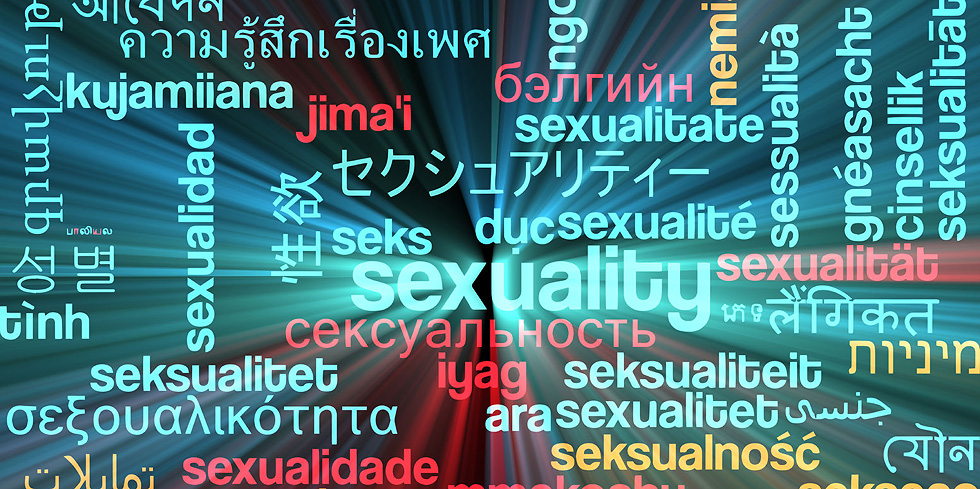I remember before starting the Psychosexual and Relationship Diploma and during the first lecture I questioned whether I was doing the right thing, and if coming from a different cultural and religious background would affect me fitting in with the rest of my colleagues or affect my framework. Graduallythis fear has diminished and I started feel more comfortable on the course. Being in a diverse group particularly and seeing that there are lecturers from different ethnic and cultural backgrounds helped to build up my confidence and feel at ease. Also this diversity in the group, and my coming from a different background made me conscious about the importance of learning about others cultures, faiths and groups and the input it has in the psychosexualand relationship work.
During the first day, as we were discussing cultural diversity, I was confused and questioning whether being from a different background and different religion would affect my development in this new career or if other people would judge me. I remember when my tutor asked who of us are not part of the Church of England, and no-one raised their hands, I was apprehensive about raising mine and saying I’m Muslim. I was thinking if I am the only one here from different religion? I was hoping to see diversity and not assuming that I am the only odd one in this group, I gathered my strength and raised my hand, and I asked my tutor if he means from different religion and after he clarified this I said “yes I am from different religion, I am Muslim”, he was so kind and though I cannot remember his exact words, he was very professional. Surprisingly, after I said that I am from a different religion, most of the class started to raise their hand and they talked about their religions or those with no faith, so I was not the only different one, we were a big diverse group.
Talking about cultural diversity made me realize how important is to learn about differences in various cultures. Prior to me embarking upon this course, my perception was wholly different culturally to how I see things now. I am fully aware that it is of the utmost importance to embrace the multitude of cultures in relation to psychosexual therapy.
I think it is vitally important to be aware of cultural differences in psychosexual therapy especially that we are currently living in a multicultural society that exists within the United Kingdom, we psychosexual therapists cannot afford to make assumptions about the social and sexual development of our clients.
We need to be aware of social, racial and ethnic factors, religion, and personal values in order to be fully prepared to understand and support any client group, also we need to understand that there is no ‘normality’ in psychosexual therapy, Soans & Stevenson (2003) defined normality as ‘state of being usual, typical or expected’, with the diverse culture we are living in at present there is nothing usual, typical or expected and we psychosexual therapists need to think of normality as a fluid concept open to change as we always face new excited cases, different people with interesting stories that take us far away from ‘normality’.
It is important to look at cultural factors and their influence on our clients, and the way they seek help or they present a problem, these cultural factors should not be seen as an obstacle in the way of therapy for a client from different culture, I can use myself and my work as an example here, coming from different culture and background made me just aware of the differences people bring to therapy, ironically all my clients are mixed, from different cultures, until now I don’t have a couple from the same cultural background as me, and I can say this differences only bring healthy and certainly rewarding challenges to therapy whether in their communications or their perception of an issue. De Silva (1999) discussed the importance of being knowledgeable, sensitive, flexible and resourceful in working with these clients, and take into consideration cultural factors’obvious and not-so-obvious’, and make it part of the assessment as well as of the formulation in our work.
To summarise: when working with clients from different cultures or if we are ourselves are from different culture, we need to be mindful that in spite of our different cultures, backgrounds and religions, these differences in fact will enable us brainstorm, enriched our relationship, and learn about each other’s’ cultures and traditions can bring us closer together. We have our differences but we arguably share more commonalities. We HUMAN share the same losses and we often have the same goals, which will allow us to support and understand each other. I always put in my mind that I have a crucial role in the process of therapy because if I can convey to the client that there is no need to be worried or embarrassed, they will hopefully be liberated from hesitations or restrictions as they had to talk about this important and sensitive aspect of their life and relieved from the taboo of talking openly about any intimate part of their life.
Nariman Al-Aloosi LDPRT graduate
References
Padmal De Silva (1999) Culture and sex therapy, Sexual and Marital Therapy, 14:2, 105-107, DOI: 10.1080/02674659908405396
Soans, C. & Stevenson, A. (2003). Oxford dictionary of English, Second edition. Oxford: Oxford University Press.


Comments are closed, but trackbacks and pingbacks are open.